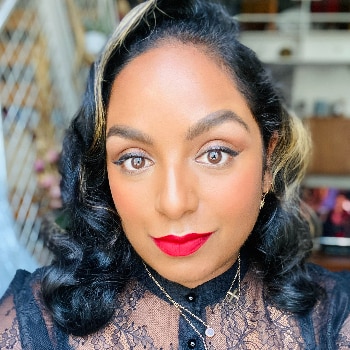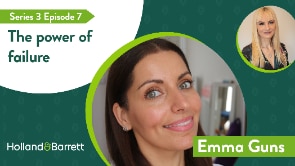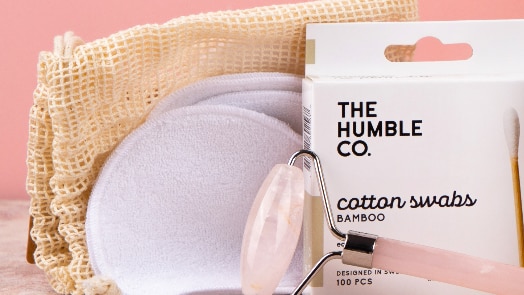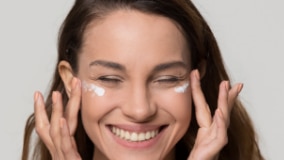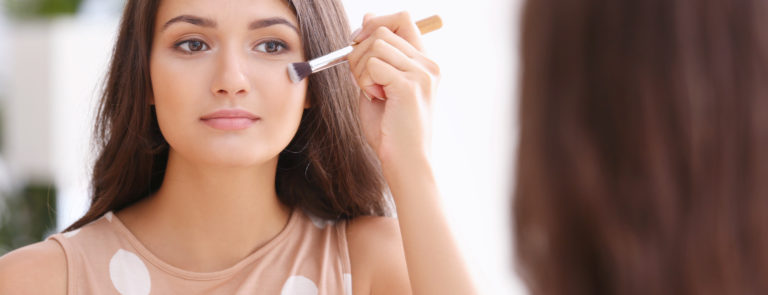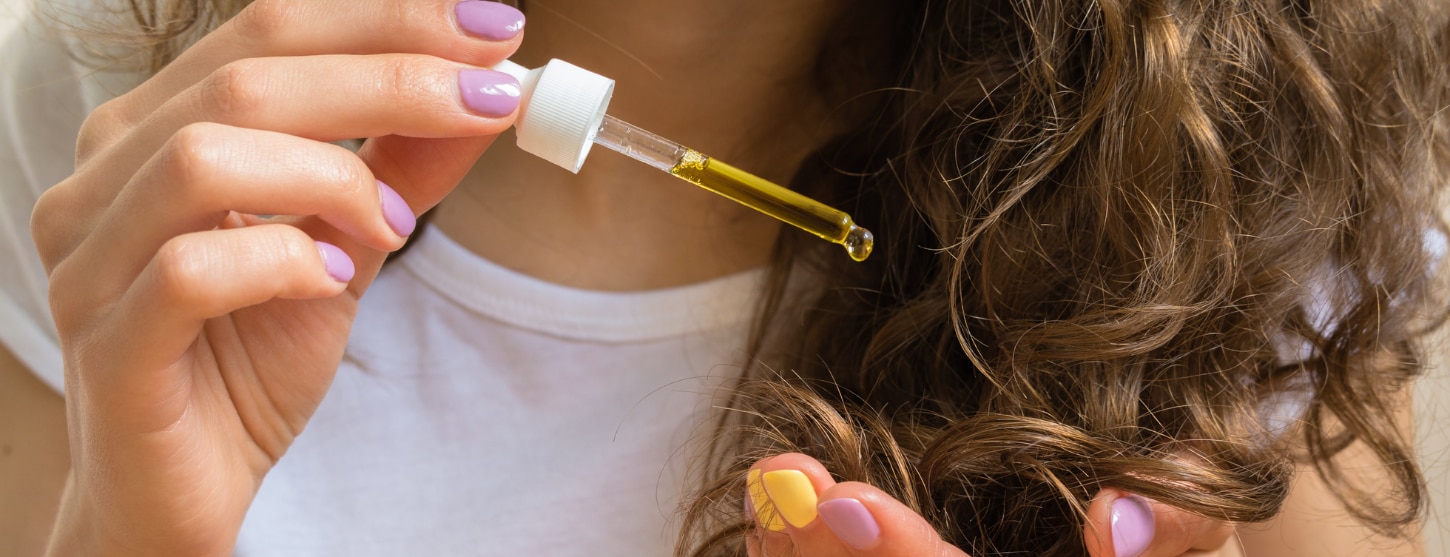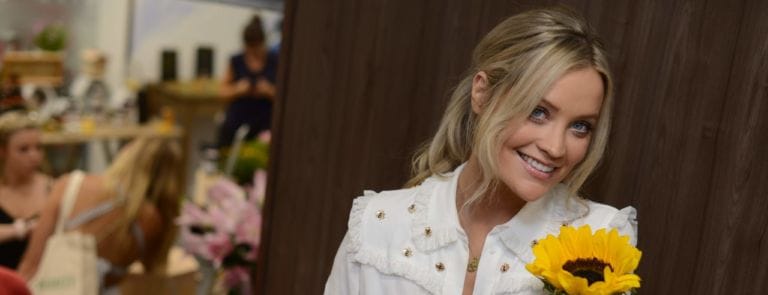S04 E03 | 53m | Beauty, diversity and skincare
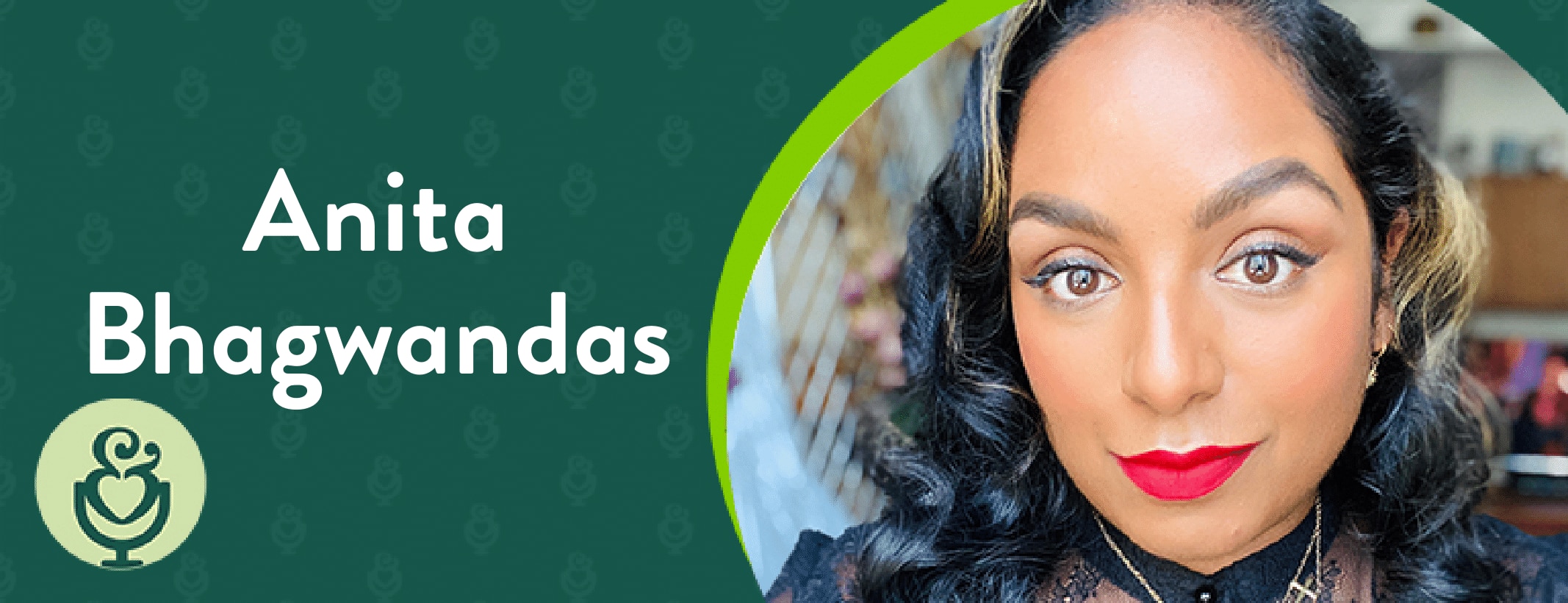
Overcoming diversity hurdles in the beauty industry
The thing that makes you different makes you special, with Anita Bhagwandas
Anita Bhagwandas has been a trailblazer in our favourite women’s magazines for over a decade. Known best for her award-winning journalism, she’s worked to champion inclusivity and diversity in the beauty industry. And now her debut book, Ugly, is on the way…
The powers of makeup can be both empowering and exclusive. What does it mean for those who don’t fit into the narrow expectations?
In this episode, Anita shares the joys and challenges of being an advocate. Navigating colourism, poor representation, and her late ADHD diagnosis, she helps listeners unpick ingrained beauty standards and cultivate a beauty regime that celebrates themselves.
Listen to Episode 3
'I see beauty as part of self-care’
We caught up with beauty journalist Anita Bhagwandas on The Wellness Edit to talk beauty, diversity, wellness and self care
Her passion for all things beauty began growing up in South Wales in the 1980s. Being of Indian heritage, dark-skinned and plus-sized meant she didn’t meet the stereotypes of what was supposedly pretty (in her words, ‘thin, white, straight hair’). ‘Nothing about me felt like it fitted into what was meant to be beautiful,’ she says. ‘So I became very interested in the transformative powers of beauty products.’
‘Beauty should be enjoyable’
Incredibly important to Anita is the idea that beauty products shouldn’t be about hiding our flaws, but something enjoyable that enhances our life. ‘We have to be really careful when using cosmetics, and make sure that we are putting them on as a ritual and part of self-care, not from a place of concealing or negativity or self-criticism. That can happen a lot, particularly as we get older. That diminishes our power as women.’ However, used mindfully she says: ‘They are a lovely accompaniment to life and who we are.’
When it comes to her beauty approach, Anita is open-minded: she’s as happy with homemade products as luxury or science-based ones, while her regime changes through the seasons. And she admits she has a weakness for nice packaging. ‘I’m definitely drawn to things where I like the look of them. I like the sensorial feel of a product.’
At the moment, in her own regime, she’s simplifying things. ‘I veer towards quite a complicated regime as I love skincare products. But I also had really bad eczema the last couple of years so I’m paring things back.’
‘Why inclusive beauty matters’
Today’s cosmetics ranges are finally serving a range of skin colours, but growing up, says Anita, 'I couldn't buy a foundation for my skin tone in a shop. It sounds ludicrous, but that was the reality.’ The young Anita sought refuge in music, identifying as a goth (‘I still do,’ she says), and loved the freedom. ‘It gave me acceptance as it meant I didn’t have to fit into that mainstream narrative of beauty.’
Her formative experiences hugely shaped her journey as a writer. ‘I don’t see beauty through a traditional lens,’ she says. ‘If I’m writing a feature, it isn’t just “Here’s five moisturisers to try”. I really think about anyone reading who feels like they don’t fit in, or struggles with their skin. It’s given me a strong intersectional viewpoint.’
Listen to Episode 2
Anita's Wellness Routine
Above all, Anita says, it’s vital to recognise: ‘Wellness is not stuff, it’s how we feel about ourselves. To buy a thing isn’t self-care, it’s just shopping.’ Here she shares her top wellness tips:
1
Do one thing at a time
People with ADHD can burn out faster, says Anita, so her focus is on self-care. ‘Try to do only one thing at a time and be more present. For me, it’s about doing a bit less, doing it well, having more space, doing things I enjoy a bit more.’
2
Slow down your skincare
If you’re someone who tends to slather on your moisturiser as fast as possible, Anita recommends being more mindful about your skincare. ‘Enjoy it and take time over it. Slow down a bit.’
3
Enjoy the stillness
Anita’s a fan of meditation – her preferred method is vedic meditation where you have a mantra – and mini daily digital detoxes. ‘I turn notifications off on my phone,’ she says.
4
Use perfume
She’s evangelical about the power of scent. ‘I have a strong sense of smell – I work and live in my flat. When you work from home, it can be hard to transition to free time. Changing the scent — whether that’s with a candle or spritz of something – is a signal it’s the end of the day, and changes the mood.’
5
Understand your feelings
Anita is a devotee of journalling as a mental health tool, and uses a Feelings Wheel alongside it: a circular chart with offshoots from primary feelings to help you decipher what’s really going on. (Under your ‘anger’, for example, you might be feeling ‘let down’, or also ‘betrayed’.)
‘It can be hard to know how I feel, so the wheel helps me pinpoint it. Often when we feel sad, there’s something else behind it: actually, we’re really lonely or anxious.
6
Are you hungry, angry, lonely or tired? What to know about ‘HALT’
Anita also highly recommends a strategy called HALT, sometimes used in addiction, where you identify: ‘Am I Hungry, Angry, Lonely or Tired?’. (Hence the acronym.) It’s stuck on her computer to remind her to figure out her needs at any time. ‘It might be I’ve worked through lunch and I’ve forgotten to eat. Or I’ve been working in my flat for hours, and haven’t seen anyone, so I need a connection. It’s a quick easy win for a lot of people.’
The highs and lows of social media
Today, social media is giving a voice to less represented groups, says Anita: 'But before the internet, we were sold one idea of beauty as everyone read and watched the same things. Now you can choose not to partake, and turn off things that are damaging.’
However, filters, fillers and ‘tweakments’ are also accelerating a modern beauty standard that won’t let us age, with a familiar uniform look (think plumped up lips, big brows and poker-straight hair). ‘We’re being sold a beauty ideal presented as real life through social media and reality TV as damaging as airbrushing was in the 1990s,’ Anita agrees.
The history of beauty
So where do our beauty standards actually originate? It’s a fascinating question that Anita’s forthcoming book, Ugly, out early 2023, explores. A keen history buff, her research got her thinking about how vastly society’s ideas of beauty have varied across different eras. ‘Today we’d look at, say, the Edwardian period’s giant bouffant hairstyles and think, “that’s not very attractive.” In the Elizabethan era, the standard was: very pale, no eyebrows and plucking your hairline back, as there was a belief it looked aristocratic.’
The title is meant to be provocative. ‘Ugly is a word we cower from. As recently as five years ago, I’d have described myself as stupid, lazy and ugly. I now realise that the fact I don’t fit in does not mean I’m ugly. It’s a powerful construct.’
‘Your difference makes you special’
One thing that’s helped her is undertaking what she terms a form of ‘immmersion therapy’, where you flood your social media feeds with people more like you. ‘We can feel like things about us are abnormal, so it can help normalise things. I’d suggest that to anyone struggling,’ she says, adding: ‘My message to my younger self is, the thing that makes you different is the thing that makes you special.’
‘My ADHD means I’m super-creative’
Anita has had other personal challenges. During the pandemic she was finally diagnosed with ADHD, helping her make sense of some of her issues over the years. ‘I definitely struggled a bit at school academically. My focus is really short. I’ve always found films really hard to sit through.’ But there are also positives. ‘It means I’m super-creative and dynamic, and can come up with ideas really fast.’ She’s learned to be kind to herself, and find strategies that work. ‘For example, recognising I’m great in the mornings but not the afternoons.’
One practical thing that’s helped is a clock-like gadget called a time timer. ‘A lot of people with ADHD struggle with “time blindness” – where, before you know it, four hours have gone and you haven’t done what you needed to do. The timer physically shades in time as it progresses so you can see how much is left.’
